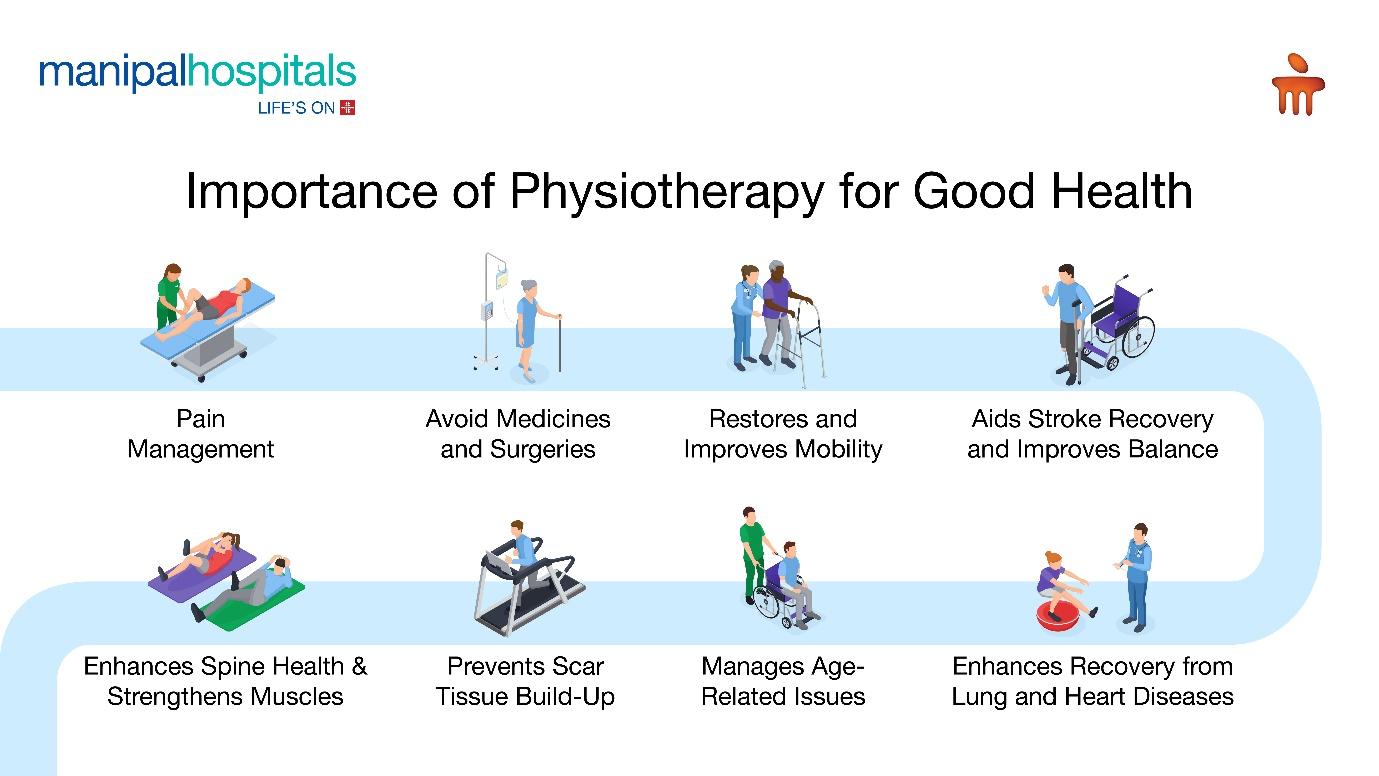
Physiotherapy, also known as physical therapy, is essential for addressing injury, ill health, and disability through movement and exercise. It’s a powerful tool that goes beyond medication, utilising exercise, and manual therapy techniques, focusing on rectifying bodily defects. Physiotherapists, or PTs, are crucial in health improvement and disease prevention, making physiotherapy a vital aspect of healthcare.
As we age, our bodies become more susceptible to neurological disorders, Chronic Fatigue Syndrome and Paralysis. Physiotherapy treatment offers effective treatments for these conditions, underscoring its importance in maintaining and improving health.
Synopsis
When is Physiotherapy Used?
Physiotherapy is utilised in a broad range of conditions, including:
- Musculoskeletal Issues
- Neurological Conditions
- Cardiovascular Conditions
- Respiratory Conditions
- Sports Injuries
Common Physiotherapy Treatment Techniques
Several techniques are commonly used in physiotherapy to address various conditions:
- Manual Therapy: Hands-on techniques to mobilise joints, soft tissues, and muscles, improving mobility and reducing pain.
- Exercise Therapy: Tailored exercise programmes designed to enhance strength, flexibility, and overall fitness.
- Electrotherapy: Utilising electrical energy to manage pain, reduce inflammation, and promote healing.

Benefits of Physiotherapy for Good Health
The importance of physiotherapy is crucial for achieving and maintaining good health. By incorporating physiotherapy into the healthcare routine one can experience significant improvements, such as:
-
Pain Management: One of the primary benefits of physiotherapy is the reduction or elimination of pain. Techniques such as manual therapy and exercise can alleviate pain and restore normal function, reducing reliance on painkillers.
-
Avoid Medicines and Surgeries: Physiotherapy often serves as an alternative to surgery. By addressing the root cause of pain and dysfunction through physical means, patients can avoid the risks and recovery time associated with surgical procedures.
-
Restores and Improves Mobility: Physiotherapy is essential for individuals with mobility issues. Whether recovering from an injury, surgery or managing a chronic condition, physiotherapy helps restore movement and enhance overall mobility, enabling patients to return to their daily activities.
-
Aids Stroke Recovery and Improves Balance: Stroke patients frequently face physical limitations affecting their daily lives. Physiotherapy is vital in stroke rehabilitation, helping patients regain strength, coordination, and balance, thereby enhancing their quality of life.
-
Enhances Spine Health and Strengthens Muscles: Maintaining a healthy spine is crucial for overall well-being. Physiotherapy focuses on strengthening the muscles around the spine, improving posture, and preventing future back problems.
-
Prevents Scar Tissue Build-Up: Following injury or surgery, scar tissue can form, leading to stiffness and pain. Physiotherapy techniques help prevent the build-up of scar tissues, ensuring better healing and flexibility.
-
Manages Age-Related Issues: With age, our bodies encounter various challenges, from joint pain to decreased mobility. Physiotherapy helps manage these age-related issues, promoting independence and a better quality of life for older adults.
-
Enhances Recovery from Lung and Heart Diseases: Physiotherapy benefits patients recovering from lung and heart diseases. Techniques such as breathing exercises and cardiovascular rehabilitation improve lung capacity, heart function, and overall endurance.
Physiotherapy is a versatile and invaluable healthcare discipline that offers numerous benefits for people of all ages and backgrounds. Whether recovering from an injury, managing chronic conditions, or enhancing overall well-being, incorporating the benefits of physiotherapy into your healthcare routine can lead to improved physical health, increased functionality, and a better quality of life. By focusing on movement and exercise, physiotherapy addresses the root causes of pain and dysfunction. You can also refer to the Orthopaedic Department of Manipal Hospitals, Vijayawada for a drug-free and holistic approach to health and wellness.
FAQ's
Physiotherapy benefits people of all ages! Whether you're recovering from an injury, managing a chronic condition, or simply want to improve your mobility and well-being, a physiotherapist can help.
Physiotherapy exercises may cause some mild discomfort at times, but they shouldn't be excessively painful. A good physiotherapist will adjust the program to your tolerance level.
The number of sessions depends on your specific condition and goals. Your physiotherapist will create a personalised treatment plan and adjust it as needed.
Yes, physiotherapists often prescribe exercises to be done at home alongside with your in-clinic sessions. This helps you maintain progress and recovery between appointments.
Yes, physiotherapy techniques like massage and mobilisation can help reduce scar tissue formation and improve flexibility in the affected area.





















 3 Min Read
3 Min Read




15.png)
.png)
14.png)









